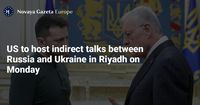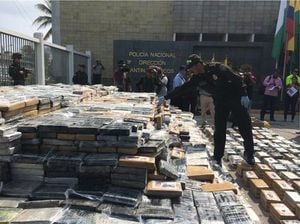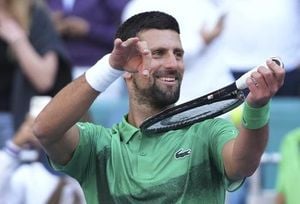The diplomatic landscape surrounding the ongoing conflict between Russia and Ukraine is set to experience crucial developments next week. The United States is gearing up to facilitate indirect talks between the two nations in Riyadh, Saudi Arabia, on Monday, March 24, 2025. This intervention comes amid heightened tensions and ongoing hostilities, as global stakeholders continue to seek a resolution to the war that has gripped Ukraine for over three years.
US Special Envoy for Russia and Ukraine, Keith Kellogg, revealed in an interview on Thursday that the negotiations will adopt a "shuttle diplomacy" format. This means US representatives will act as mediators, relaying terms and conditions between the two delegations positioned in separate rooms. The goal, as Kellogg stated, is to explore pathways leading to a comprehensive ceasefire: "You basically say, 'Okay, what are your terms?' And you go to the other side, 'What are your terms?'" This method aims to provide a framework for movement towards peace.
Confirming Ukraine's participation, President Volodymyr Zelensky highlighted that a delegation from Kyiv will attend the Riyadh meetings. Reports indicate Ukrainian Defence Minister Rustem Umerov and Pavlo Palisa, the deputy head of the President's Office, are among those who will represent Ukraine. On the other side, Kremlin aide Yury Ushakov has indicated that Russia will send Grigory Karasin, Chair of the Foreign Affairs Committee, along with Sergey Beseda, an advisor to the head of the FSB. Observers note that one key discussion point could involve a potential revival of the Black Sea Grain Initiative, an agreement initially brokered by the UN and Türkiye in 2022 to ensure safe passage for grain exports.
As the backdrop for these negotiations unfolds, Zelensky has not hesitated to voice his frustrations regarding Russian military actions. Speaking at a European Council summit in Brussels earlier this week, he criticized continued Russian airstrikes, which he believes undermine efforts to establish a ceasefire. "By now, there could have been over a week without killings, without strikes, without fire – if Putin were not the only one keeping this war going," Zelensky pointedly remarked, underscoring the pressing need for an end to hostilities.
In addition, Zelensky addressed the situation in a subsequent press conference in Oslo, where he discussed U.S. President Donald Trump's recent call with him. Contrary to circulating reports, Zelensky asserted that Trump had not proposed any potential U.S. recognition of Russia's annexation of Crimea, nor did the former president mention a plan for the U.S. to assume "ownership" of the Zaporizhzhia Nuclear Power Plant, currently under Russian control.
While the United States plays a mediating role, the European Union's impact on peace negotiations in Ukraine cannot be overlooked. In a live interview with Euronews, José Manuel Barroso, the former president of the European Commission, stated that Russia itself is eager for Europe to be involved in any future peace talks. He warned, "Mr. Putin said it already: there will be no peace without the lifting of sanctions that have been imposed by the European Union." Barroso further emphasized the relevance of these sanctions, explaining that the EU has imposed 16 extensive packages since the onset of the conflict, reflecting its effort to weaken Russia's war efforts.
Barroso's comments indicate that as Russia seeks a diplomatic resolution, it remains poised to table the issue of EU sanctions during peace discussions. Interestingly, Hungary's recent decision to drop its veto on sanctions targeted at high-profile Russians signals a shifting dynamic within the EU, where unity is critical for effective action. During the recent EU summit in Brussels, leaders voiced their readiness to impose further sanctions on the Kremlin to bolster their unified stance amidst ongoing conflicts.
Despite challenges, Barroso insisted that the EU remains a powerful entity capable of acting decisively in crises, pointing to examples such as the recent NATO memberships of Finland and Sweden. He expressed confidence that the bloc’s collective actions will continue, regardless of internal differences among member states.
As the Riyadh negotiations approach, the compounding pressures from international sanctions, the ongoing conflict fuelled by military hostilities, and the need for a diplomatic solution intensify, all eyes will be on the outcomes of this critical meeting. The intricate relationship between Ukraine and Russia, alongside the influential role of the European Union, continues to evolve as leaders on all sides navigate the complex pathways toward peace.





